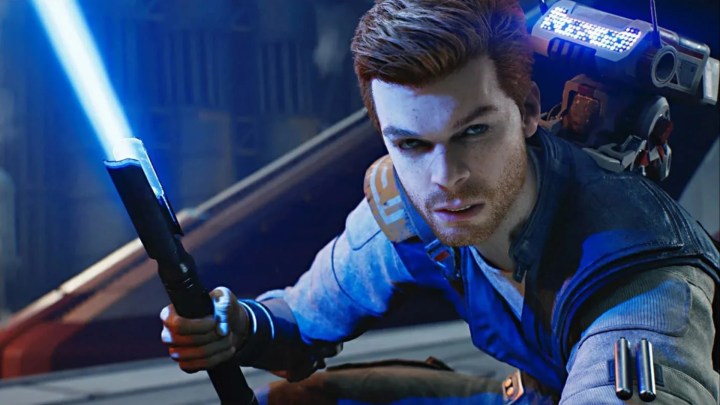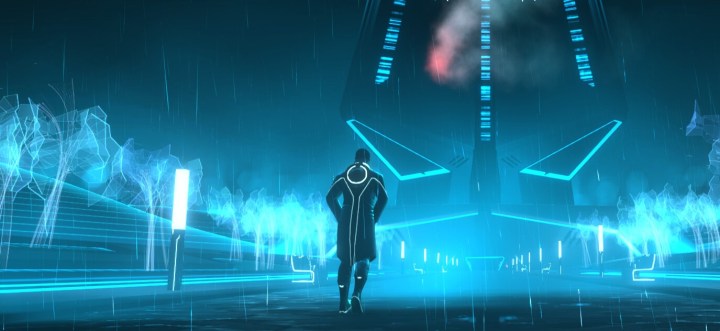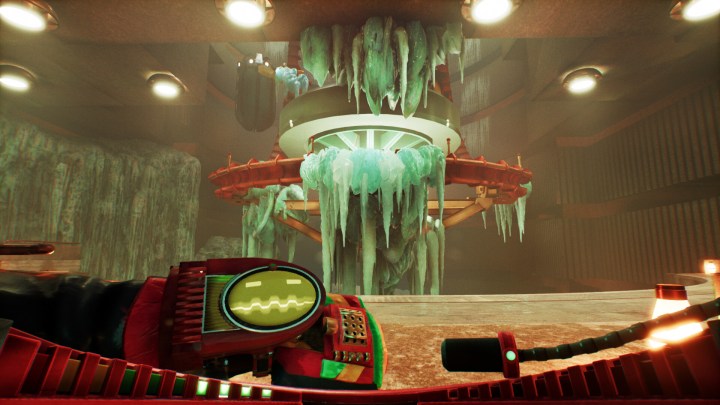More than any other entertainment genre, I love a good piece of science fiction. It’s a form of media with limitless potential, allowing creators to invent a vision of the future that’s as grounded or fantastical as they can imagine. But what I love most about a great work of sci-fi is how it can speak to something truthful about our present day by providing a cautionary tale on where tech is going or simply reflecting the human condition. It’s a powerful storytelling tool that video game series like Metroid have taken advantage of over the years to weave rich narratives.
As a genre enthusiast, I’ve been in heaven the past few months. This spring has brought an absolute bounty of sci-fi video games — both titles based on beloved IPs and those that take place in completely original worlds. From one of the best Star Wars games ever made to a forward-thinking indie story about AI, these five games offer just a small taste of what’s been a landmark few months for interactive sci-fi.
Star Wars Jedi: Survivor

From its inception in George Lucas’ original trilogy, the Star Wars series has always grappled with big ideas between outer space pulp. It’s a war story at its heart, telling the tale of resistance fighters battling against the Empire’s fascist rule. Past Star Wars video games have piggybacked on those thematic building blocks with varying degrees of depth, but I appreciate the direction Star Wars Jedi: Survivor goes in narratively. Set five years after the events of Fallen Order, Cal Kestis looks to gain an advantage over the Empire by seeking the help of a High Republic Jedi named Dagan Gera. Unfortunately, Gera isn’t interested in being an ally for a Jedi Order that betrayed him.
As its name implies, the sequel uses its sci-fi framework to talk about what it means to be a survivor in an unforgiving world. Kestis and Gera have two very different ideas of that, with the latter embracing their inner darkness in order to dismantle a harmful status quo created by the Jedi Order. That theme gets explored more explicitly later on, as characters are forced to make difficult decisions to defend the people they love. It’s an exciting human soap opera that’s worthy of the Star Wars name.
Star Trek: Resurgence

What an unusual blessing it is that we’ve been treated to great Star Wars and Star Trek games within one month of one another — even if the the two title couldn’t be more different. While Star Wars Jedi: Survivor is a high-budget action game where you’ll slice through hundreds of droids, Star Trek: Resurgence is much more understated. Developed by Dramatic Labs, a studio started by former Telltale Games workers, Resurgence is more of an interactive TV show in which players assume the role of both the captain of the USS Resolute and a member of its Lower Decks. Both of their stories intersect as the ship’s crew gets tied up in a complicated peacekeeping missions between two warring space factions.
It’s a fantastic fit for the Star Trek series. Rather than creating a big action game filled with blaster battles, Dramatic Labs delivers an engrossing game about diplomacy. Impactful, difficult dialogue choices show the challenges of keeping peace, both in international affairs and personal ones. That makes for a gripping sci-fi story that feels correctly aligned with the cerebral nature of Star Trek. Though if you like you’re games with a little more interaction, it has plenty to offer in that department too, from puzzle solving to stealth missions that help break up the peace talks. It’s a great season of Star Trek wrapped into a concise, nine-hour package.
Tron: Identity

As an IP, Tron has always seemed like a natural fit for video games — after all, the original movie centers around an arcade cabinet. Tron: Identity delivers that dream, but probably not in the way you’re expecting. It’s not a neon-tinged action game complete with light cycle chases and disc-throwing combat. Instead, it’s a cerebral visual novel that dishes out an excellent slice of traditional, hard sci-fi.
The neo-noir story follows a program named Query who’s called to investigate a burglary at The Repository, a massive building at the center of an abandoned Grid. That premise lets the short story chew on some big philosophical questions through conversations with a handful of characters. What particularly stands out are some of its theological themes, as programs struggle to understand why their creator has left them. It all makes for an engrossing little Tron tale about the anxieties of living in a world you have no control over.
Return to Grace

Though there are a handful of established Hollywood franchises on this list, one of this spring’s best sci-fi stories is a totally original, small-scale indie game. Return to Grace is a short adventure about an astronaut’s dangerous journey to find a once-powerful AI, Grace, that seemingly disappeared from humanity during a golden age it helped create. The story sees the main character stumbling into an abandoned facility on a remote planet where she must track down Grace with the help of an eccentric gang of AI companions.
While the gameplay is sparse, revolving around walking exploration and a few simple puzzles, its story feels especially right for the current moment. The deeper you get into the facility, the more you learn about how humanity revered Grace, treating it like a God that could solve all of its problems. It all builds to a thoughtful ethical question that I’ve been chewing on since I finished it, leaving me to wonder if AI’s convenience could lead to complacency.
Planet of Lana

Indie puzzle-platformer Planet of Lana is the most understated sci-fi story on this list. Rather than telling a grand narrative full of heady questions, it’s a wordless adventure about a young girl looking to save her friends in a remote woodland village from a mysterious abduction by roots. With the help of a cat companion, Lana must navigate through the wilds by using nature to her advantage.
We never learn too much about where the robots came from. There are some environmental hints scattered throughout the story, but Planet of Lana doesn’t dwell on the details. Instead, it contrasts the image of those terrifying machines with the serene beauty of Lana’s planet. That emphasis on nature over apocalyptic chaos makes for a more hopeful sci-fi story about a girl learning to preserve what she loves about her world.
There’s much more on the horizon too. Later this summer, you’ll get to battle mechs in Armored Core VI: Fires of Rubicon and explore space in Starfield. This is just the beginning of what’s shaping up to be a landmark year for video game sci-fi.
Editors’ Recommendations
Services Marketplace – Listings, Bookings & Reviews